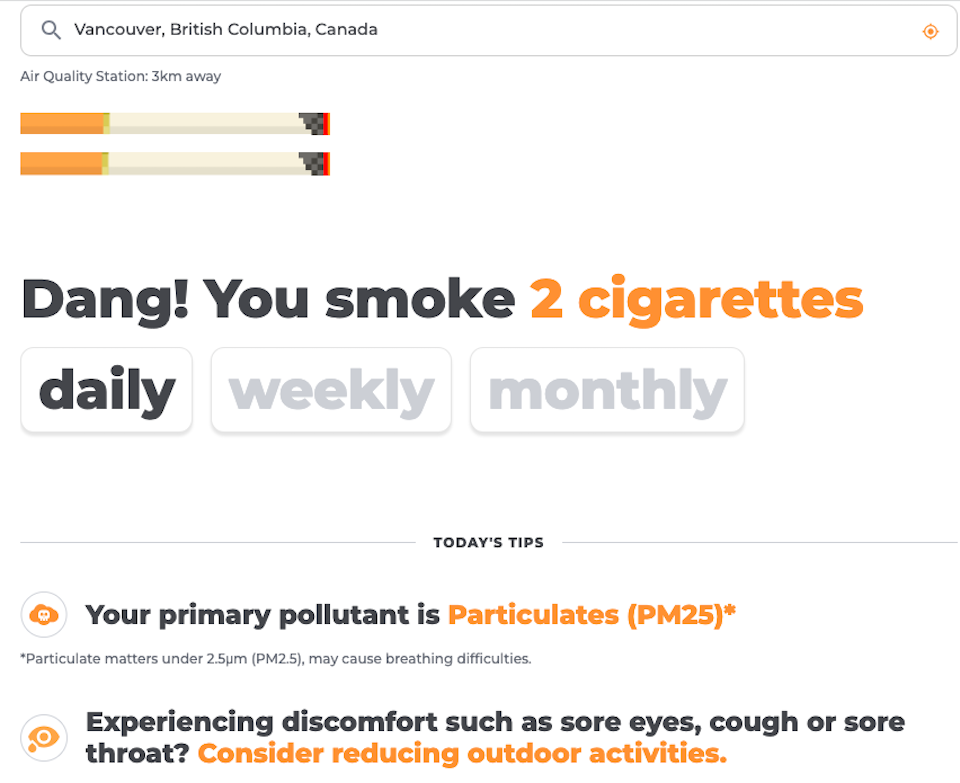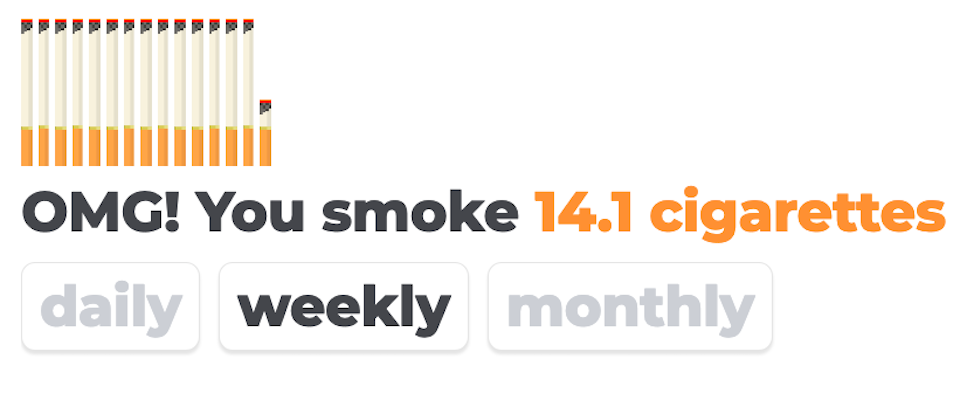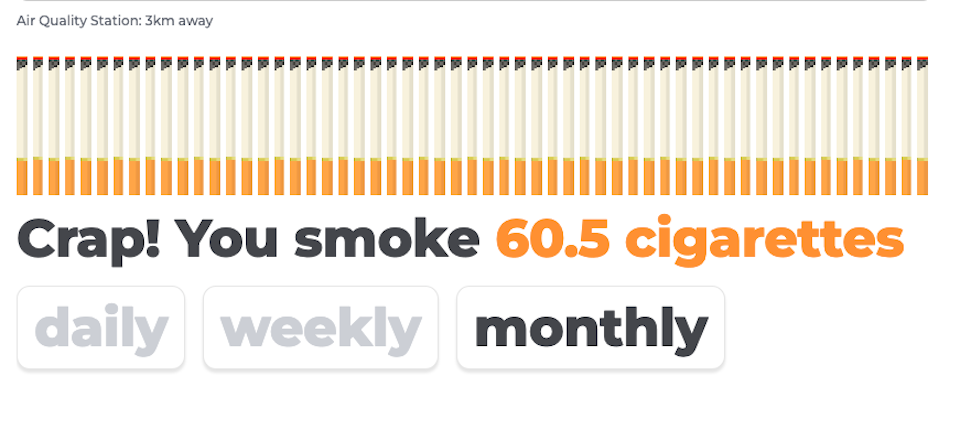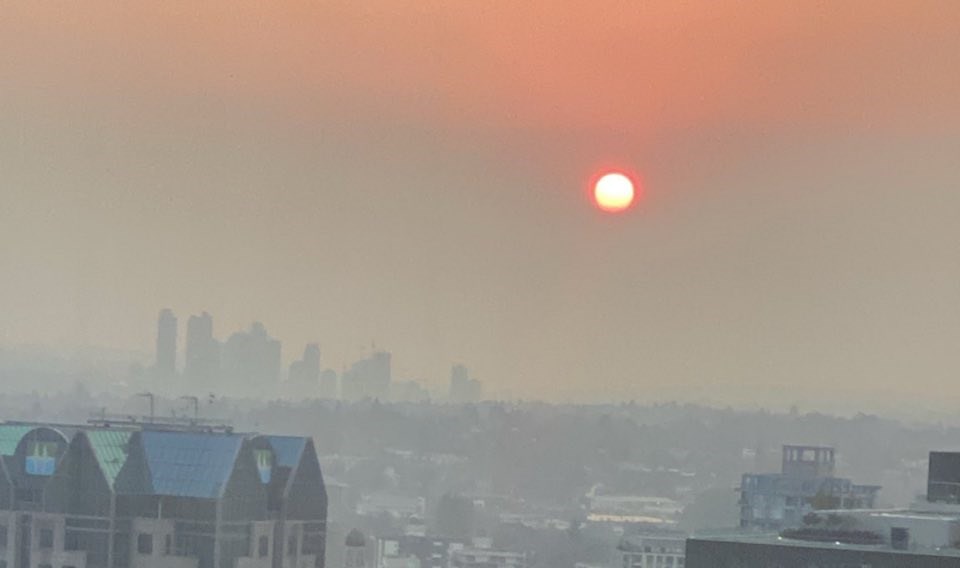Metro Vancouverites woke up to another hazy day on Monday, Aug. 21 as devastating wildfires continue to rage across the B.C. interior.
An air quality advisory remains in effect for the region due to high concentrations of fine particulate matter caused by the Kelowna fires. shows that the City of Â鶹´«Ã½Ó³»has a level five or "moderate" health risk, while other areas have a level two or "low" and the Fraser Valley has a level 10 or "high risk."
On Sunday, Â鶹´«Ã½Ó³»had some of the poorest air quality in the world, ranking ninth-worst overall.
The poor air quality is expected to persist until there is a change in the Metro Â鶹´«Ã½Ó³»weather forecast.
As a way to comprehend how pollution affects cities, an app called "Sh**t! I Smoke" converts air quality into the number of cigarettes a person will "smoke" in a day by simply breathing the air.
As of Monday at 10 a.m., Vancouverites will "smoke" an average of two cigarettes by breathing air in the city, according to the app.

If the air quality remained the same for the rest of the week, locals would smoke roughly 14.1 cigarettes by breathing the air in the city.

If the air quality persisted at the same level for an entire month, residents would inhale a whopping 60.5 cigarettes breathing city air.

The app, created by Brazilian-born designer Marcelo Coelho and Paris-born app developer Amaury Martiny, was inspired by Berkely Earth's findings about the equivalence between air pollution and cigarette smoking. According to the data, one cigarette per day (24 hr) is the rough equivalent of a PM2.5 level of 22ug/m3.
The creators admit that there have been a few surprising results in the data, such as large cities with better air quality than small villages, or stations in the same towns showing significantly different numbers. However, they note that air quality depends on myriad factors, including temperature, pressure, and wind patterns that may alter the data.
App users should still consult other resources, such as the and , for more information.




